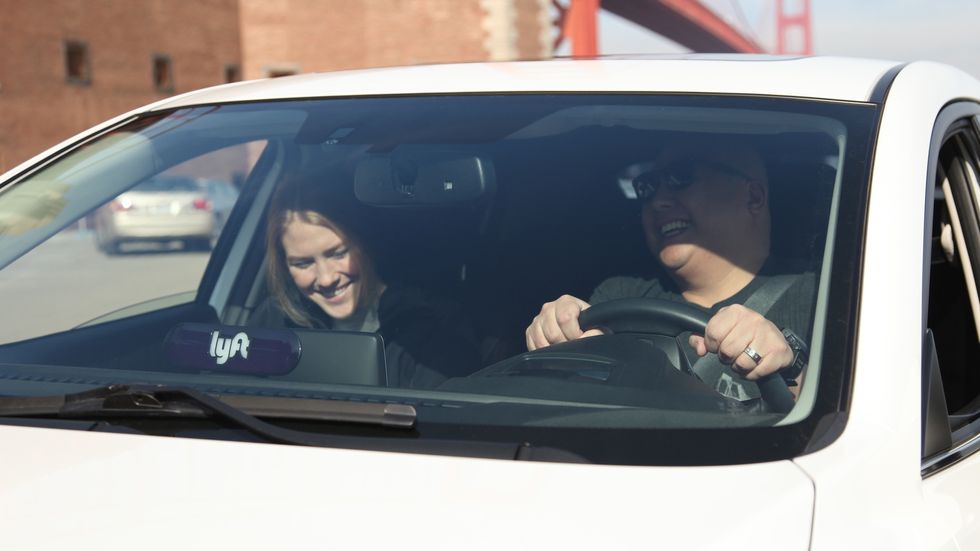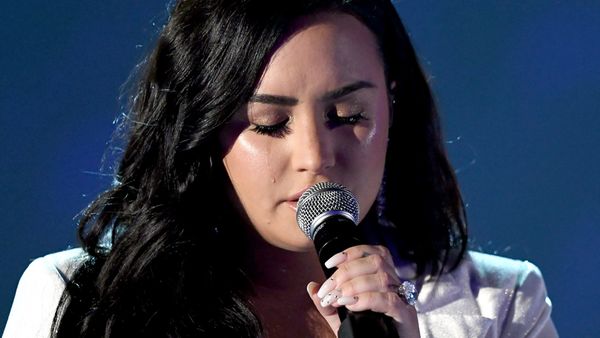I once had one of my best friends best friend call a Lyft to McDonald's, which I got. Naturally, I wasn't going to force him to pay for the whole Lyft, but the results were incredibly discouraging: he paid $7.70, and I made $3.75.
I was talking with a good friend today in the car about tipping for Uber and Lyft drivers. As a Lyft and Uber driver surviving paycheck to paycheck, with my day job not paying too much yet, I'm of the opinion that you should always tip your Uber and Lyft drivers, no matter how poorly you perceived the ride. Despite how much the ride may be, and despite how short we might be on funds (I know that few of my riders have been exactly well-to-do), tipping your Uber and Lyft drivers, like tipping your servers, is the ethical thing to do.
Here's why.
What few people know if how small of the cut drivers get out of what you pay the company as a rider. The ride for my friend to McDonald's was just one example, but, unfortunately, it was one of the better ones. Ever since I moved to a more concentrated urban area in Baltimore, that disparity has been worse. Here are three rides with Uber and Lyft, telling how much the rider paid, as well as how much I personally made from the ride:
The rider paid $7.59, and I made $3.38.
The rider paid $7.22, and I made $3.69.
The rider paid $10.55, and I made $4.84.
The reason I made so little from these rides were simply that they were short-distance rides, and the biggest factor in how much Uber or Lyft pays you is the distance you drive. I very much understand that tipping isn't mandatory, and I didn't always tip before I became a driver myself. But in city rides in high-density urban areas, Uber and Lyft take almost half, if not more of the cut, and the driver is left making not much at all. Imagine having to navigate peak rush hour traffic and all the frustrations that come with it, only to be paid $3.50, with no tips.
The ridesharing companies themselves haven't exactly helped drivers. The expectation, for many, isn't to tip for standard or below standard service, as it is in the restaurant industry, but only for well-above standard service. Uber, when it first started in 2010, stood against having to tip drivers because the app would be a hassle for drivers and passengers. "We decided against including [an option to tip] because we felt it would be better for riders and drivers to know for sure what they would pay or earn on each trip — without the uncertainty of tipping."
Uber went on in a 2016 blog post to cite studies that the connection between tipping and the quality of service is weak, especially since personal biases affect how much a passenger tips a driver. This inherent inequality was bundled with the fact that better tips come from more wealthy passengers, which could incentivize drivers from spending all their time driving in wealthy business districts.
I think both points are valid, especially the second, but the reality is that Uber didn't feel the need to include a tipping option for a long time for a more self-interested reason: money from tips doesn't go to ridesharing companies like Uber or Lyft. They go to the driver directly. It makes sense that ridesharing companies would have little vested interest in making sure their drivers are tipped.
In 2018, The New York Times' Kristin Wong cited a survey of 2,600 active Uber drivers found that the median hourly income for UberX drivers is $13.70, not including tips. The reason why tips weren't included in the survey, according to Brett Helling, the owner of Ridester.com, a website that offers resources for drivers tips weren't included because tip incomes were negligible in the majority of cases — over a third of drivers surveyed made no money on tips.
Yes, there is some responsibility on the driver. Some should offer more resources to the rider, maybe crank up the AC a bit, maybe drive less aggressively, maybe have a cleaner car, and actually try to make conversation (or take the hint that a passenger doesn't want to talk). I'm guilty of all these things at times, and maybe I would get more tips if I did some things a little better.
But the key word here is "some." Many would argue that $13.70 isn't a bad wage, but that isn't factoring in expenses for the car, including gas, frequent oil changes, and the regular wear and tear that comes with driving often and long distances. The reality for many Uber and Lyft drivers is that the hourly wage can be less than $10, and drivers have to be careful for the costs to not outweigh the benefits.
So never assume that an Uber or Lyft driver is well-to-do and might not need your tips anyways. Think for a second about the kinds of people that drive for Uber or Lyft — not exactly your teenager from a wealthy suburban neighborhood trying to make extra change.
"Based on our findings, Uber riders are still very set in Uber's old no-tipping policy," Helling said. "Drivers are paying for their own vehicle, which comes with its own slew of expenses. A dollar or two on every ride really adds up, offsetting the high cost of operating the vehicle."
I will be honest too and say that I didn't always tip my Uber and Lyft drivers before, well, I became one myself. Although I was more generous than my friends, it took the empathy of going through the same experience and enduring the same burdens and hardships that I now tip at least $3 for every Lyft/Uber ride I take.
No, no one has thrown up in my car yet, thankfully, and I have seen the frustration from my friends who have drunkenly thrown up in cars about how much they're charged by Uber or Lyft. I understand the frustrations there, but I also see the frustration of having someone throw up in your car and not being able to drive for a long time because there's vomit in your car, and having to pay for cleaning fees, too.
One driver, Julia Boyd, in Wong's articles says that "it makes sense to tip your driver because they are providing personal service which involves safety and comfort, and our cultural norm is to tip those who provide this kind of service." I can say that, as a Lyft and Uber driver, we don't expect much. A $1 tip is something we greatly appreciate because we'll have a lot of rides we don't get at all.
I understand the counterargument about the troubling and problematic history of tipping: the spread of tipping was originally linked to racial oppression of Reconstruction. Its beginnings came when servants received extra money from the wealthy aristocracy for superb service. In the beginning, many diners considered tipping classist and condescending, but the tipping movement eventually won out.
While all this may be true, that was then, and our current system is just how it is. Tipping's problematic history is no cop-out to not tip because that's the best many servers have. Echoing Boyd, Uber and Lyft drivers are providing the same kind of personal service, encountering a similar kind of chaotic uncertainty in wages and experiences, and deserve the same.







 Going to the cinema alone is good for your mental health, says science
Going to the cinema alone is good for your mental health, says science












 women in street dancing
Photo by
women in street dancing
Photo by  man and woman standing in front of louver door
Photo by
man and woman standing in front of louver door
Photo by  man in black t-shirt holding coca cola bottle
Photo by
man in black t-shirt holding coca cola bottle
Photo by  red and white coca cola signage
Photo by
red and white coca cola signage
Photo by  man holding luggage photo
Photo by
man holding luggage photo
Photo by  topless boy in blue denim jeans riding red bicycle during daytime
Photo by
topless boy in blue denim jeans riding red bicycle during daytime
Photo by  trust spelled with wooden letter blocks on a table
Photo by
trust spelled with wooden letter blocks on a table
Photo by  Everyone is Welcome signage
Photo by
Everyone is Welcome signage
Photo by  man with cap and background with red and pink wall l
Photo by
man with cap and background with red and pink wall l
Photo by  difficult roads lead to beautiful destinations desk decor
Photo by
difficult roads lead to beautiful destinations desk decor
Photo by  photography of woman pointing her finger near an man
Photo by
photography of woman pointing her finger near an man
Photo by  closeup photography of woman smiling
Photo by
closeup photography of woman smiling
Photo by  a man doing a trick on a skateboard
Photo by
a man doing a trick on a skateboard
Photo by  two men
two men  running man on bridge
Photo by
running man on bridge
Photo by  orange white and black bag
Photo by
orange white and black bag
Photo by  girl sitting on gray rocks
Photo by
girl sitting on gray rocks
Photo by  assorted-color painted wall with painting materials
Photo by
assorted-color painted wall with painting materials
Photo by  three women sitting on brown wooden bench
Photo by
three women sitting on brown wooden bench
Photo by 
 Photo by
Photo by  Photo by
Photo by  Photo by
Photo by  Photo by
Photo by 


 people sitting on chair in front of computer
people sitting on chair in front of computer











